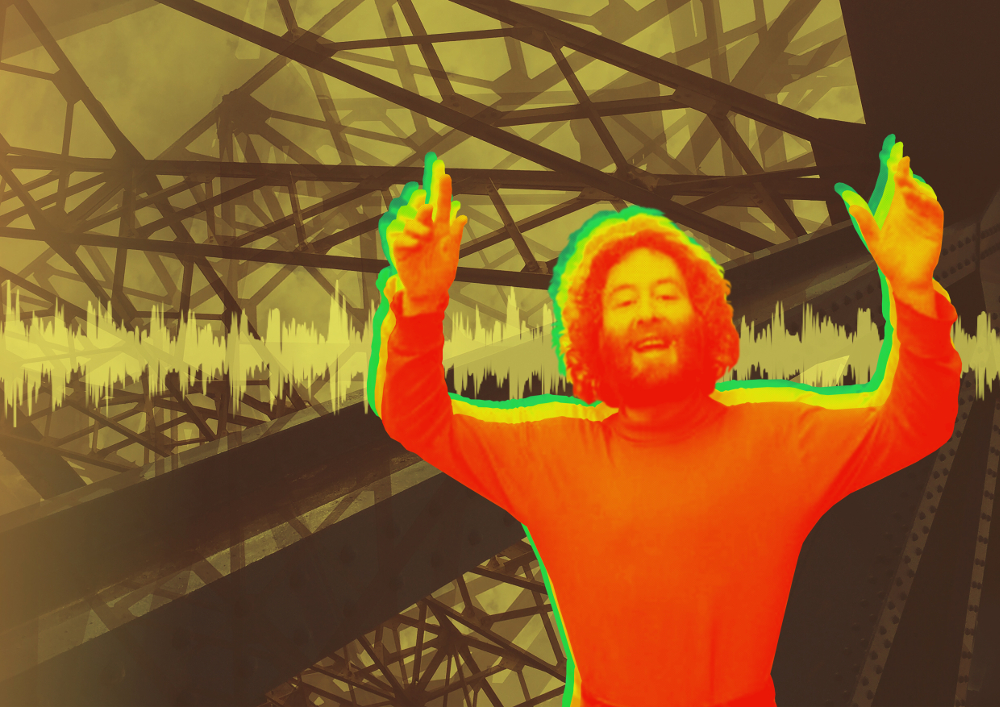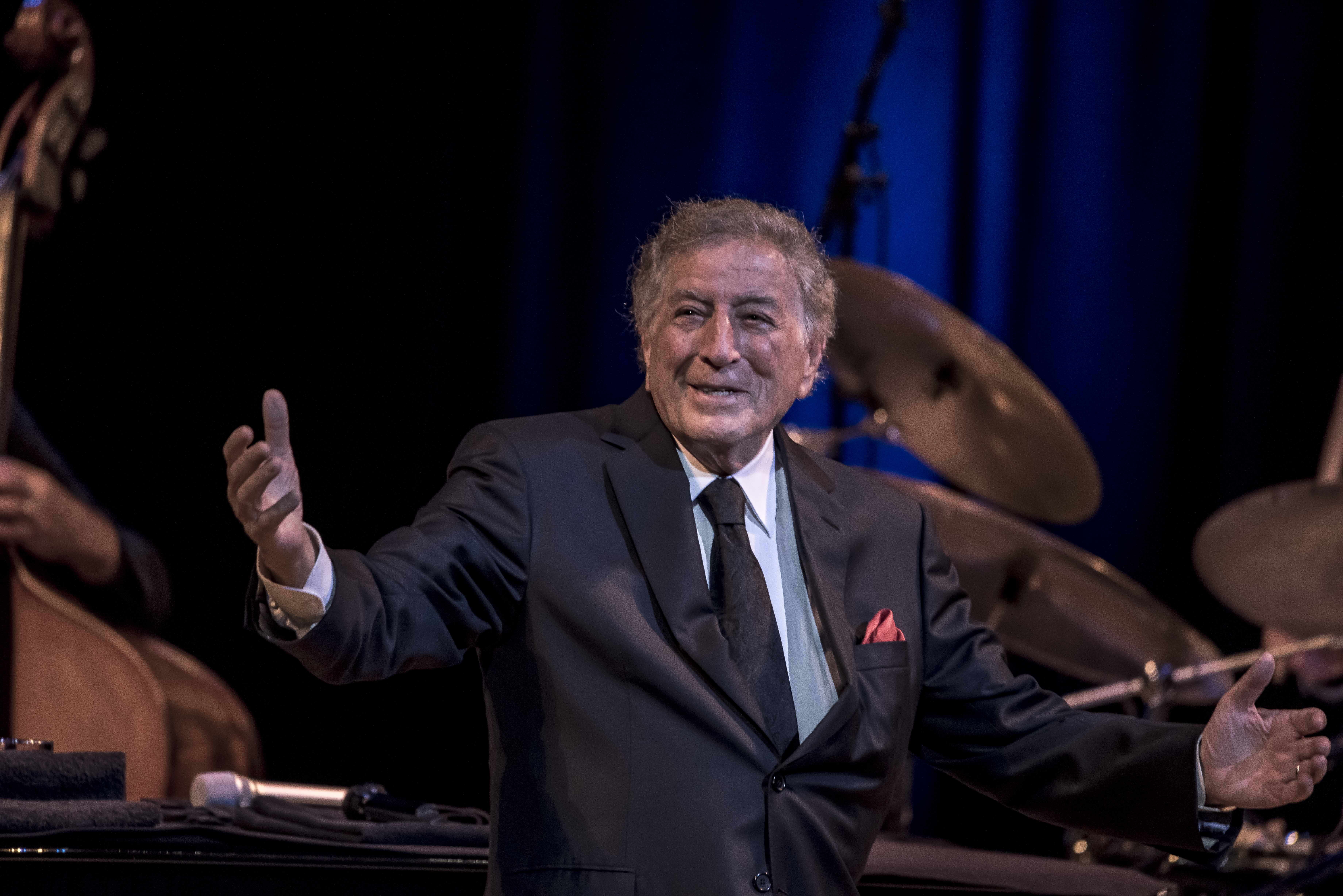Standing on Sydney Harbour at the dawn of the 1960s, Basil Kirchin experienced a tragic, life-changing epiphany.
By then, he’d spent years as a successful musician back home in London. His father had been the leader of one of the era’s top Big Bands and young Basil had followed in the family tradition. Often working alongside his dad, he’d built a reputation as one of the top jazz drummers in post-war Britain. But Basil was a restless spirit and he’d set off to see the world, journeying from India and the US to Australia. On his travels, he had packed tapes of his early Big Band work, which he’d edited endlessly in search of musical perfection. Then, in Sydney, as his luggage was being loaded onto a boat back to England, disaster struck. The loading straps broke and Kirchin’s cherished tapes tumbled into the harbour, lost forever.
What happened next will blow your mind.
Back home, forced to start afresh, Kirchin began to explore new musical ideas, inspired in part by his travels. He became fascinated by the latest developments in recording technology. He was convinced that the sounds of nature – birds, animals, speech – contained their own unique music buried away. By recording them and slowing them down, new layers of sound and melody could emerge: worlds within worlds.
Kirchin began experimenting with these techniques, using trained jazz players to improvise against treated recordings. Alongside more bankable industry work, he recorded two albums, both entitled Worlds Within Worlds. The first was released by EMI Columbia in 1971, the other by Island Records in 1973. Brian Eno penned glowing liner notes for the latter. Still, sales were infinitesimally low, and gradually Kirchin disappeared from public view. 
Thereafter, his work might have been forgotten entirely, were it not for the efforts of dedicated record collectors. One such is Jonny Trunk, DJ and owner of the Trunk Records label.
Trunk says: “In the early 90s I was collecting British jazz records because I thought they were underrated. One of the records I couldn’t find was Worlds within Worlds by Basil Kirchin. It was this sort of mythical British jazz record. No-one knew what it sounded like, but everybody knew it existed. There was no internet then, so unless you found it, you wouldn’t know anything about it. At the same time, I was listening to library music, because I was obsessed by television.”
The UK’s leading providers of library music – that is, music purpose-made for use in the television and film industries – were the labels KPM and De Wolfe, both of which Kirchin had recorded for. Trunk had come across some enticing examples of Kirchin’s library music, as had another tireless record collector, St Etienne’s Bob Stanley.
Stanley says: “I had a couple of things by Basil Kirchin on De Wolfe albums without really knowing anything about him. The thing that blew me away though was that James and Trish from Broadcast had another of his library records, Abstractions of the Industrial North, which is amazing. I was instantly a fan from that point on.”
By the late 90s, Trunk still hadn’t found the elusive Worlds Within Worlds, so he decided to try and track down the mysterious Kirchin.
“Up until then I’d only heard a few bits and bobs of his stuff. I wrote to the Musicians’ Union and the MCPS-PRS [who handle copyright and royalties for British musicians]. They got back to me and said, ‘We’ve got an address for him, but we can’t give you that. If you write to us, we’ll pass on the letter.’ So, I did, and then about two weeks later, this big parcel arrived through the door with all these tapes. There was also a scrawled letter saying, ‘Hello, I’ve been waiting for a letter like yours for years. Let’s talk.’”
So, Trunk began communicating directly with Kirchin, who, it transpired, had been living quietly in Hull since the late 70s. Sifting through Kirchin’s tapes, Trunk decided to issue one of his lost albums. Quantum had been recorded around the same period as Worlds Within Worlds and in some respects, was a reaction against it.
 “It was how he’d wanted Worlds Within Worlds to be, but hadn’t been allowed to,” Trunk says. “He reckoned Colombia had sort of shackled him musically. It was a bit too weird. Quantum was what he really wanted to do. It’s just so like nothing else. It’s brilliant.”
“It was how he’d wanted Worlds Within Worlds to be, but hadn’t been allowed to,” Trunk says. “He reckoned Colombia had sort of shackled him musically. It was a bit too weird. Quantum was what he really wanted to do. It’s just so like nothing else. It’s brilliant.”
It’s hard to convey exactly what Kirchin’s music does sound like, but it is properly extraordinary. At times, it’s closer to pure sound than anything that generally resembles music. By way of example, there are points where Quantum blends jazz instrumentation with treated recordings of birdsong which merge into the speech of autistic children (who were being taught by Kirchin’s beloved wife Esther). ‘Remarkable’ doesn’t begin to say it. It’s simultaneously blissful, complex, beautiful, alarming and utterly simple, and it demonstrates a genuinely original talent.
In 2003, Kirchin travelled from Hull down to London to do some press for the release of Quantum. In person, Trunk found him to be a fascinating character. At 76, though, he wasn’t in the best of health.
“He was really incredibly ill,” Trunk says. “He had cancer of just about everything going. He’d just lost an eye, which he was quite shy about. At the same time, he wasn’t shy about anything else. He was full of life, full of energy. Very interesting, and pretty cosmic actually, pretty out there. His ideas about music were very defined and quite unusual.”
Bob Stanley also met Kirchin during his London jaunt for an interview that appeared in The Times. “He was properly inspiring,” Stanley says. “Basically, he knew he was near the end of his life and he just wanted to sit down and explain to someone what he’d learnt, inside an hour – which obviously isn’t your average interview. I didn’t really ask him any questions. He just sat and talked. It was as though he had the whole thing prepared. I think as well, because it was a national paper, he was like, this is something for future generations to read and learn from. Except of course now there’s a paywall.”
In his time, Kirchin contributed to the soundtracks of several British films, including Primitive London (1965), Catch Me If You Can (1965), The Mutations (1974) and the marvellous Abominable Dr Phibes (1971). In fact, a phrase that Kirchin often applied to his own music was ‘imaginary soundtracks for films’, which has been used by many musicians since – but Kirchin might just have been there first.
“Oh god, yeah, Basil Kirchin was way before anybody with all that stuff,” Trunk says. “He said that when he came back from India and Australia in the early 60s, he had these pictures and imaginary films in his head and that’s what he wanted to do musically. Then he happened to end up working for a few directors. With making library stuff as well, if you think about that kind of music, it’s all quite imaginary.”
The ‘imaginary soundtracks’ concept chimes with Stanley, too.
“To be honest, that’s the way we always thought about St Etienne records,” he says. “We always thought in those terms, and I’m sure people had thought it before us. But if you think in any kind of visual terms about music, then that’s bound to come across, really. And he was doing library music as well, where he’d just be thinking about the music and what it evoked, which would also be quite cinematic.”
Quantum was rapturously received by admirers of bold, inventive music, but within two years of its release, Kirchin was dead.
 This month, his achievements are being celebrated by Mind on the Run, a whole weekend of events as part of Hull UK City of Culture 2017. Guest musicians including Jane Weaver, Jim O’Rourke, Evan Parker, Matthew Herbert, Goldfrapp’s Will Gregory, The High Llamas’ Sean O’Hagan and Jerry Dammers of The Specials, have assembled for a fine programme of screenings and performances. Trunk and Stanley will both be present as part of a series of talks. Stanley is also presenting a new short film, Abstractions of Holderness, which he has co-directed with Esther Johnson, with a score by his St Etienne bandmate Pete Wiggs to be played live by the BBC Concert Orchestra. It’s conceived as an audio-visual tribute to the period Kirchin spent living on the Yorkshire coast.
This month, his achievements are being celebrated by Mind on the Run, a whole weekend of events as part of Hull UK City of Culture 2017. Guest musicians including Jane Weaver, Jim O’Rourke, Evan Parker, Matthew Herbert, Goldfrapp’s Will Gregory, The High Llamas’ Sean O’Hagan and Jerry Dammers of The Specials, have assembled for a fine programme of screenings and performances. Trunk and Stanley will both be present as part of a series of talks. Stanley is also presenting a new short film, Abstractions of Holderness, which he has co-directed with Esther Johnson, with a score by his St Etienne bandmate Pete Wiggs to be played live by the BBC Concert Orchestra. It’s conceived as an audio-visual tribute to the period Kirchin spent living on the Yorkshire coast.
“I find that whole area pretty fascinating,” Stanley says. “Withernsea, Hornsea, Spurn Point, it just feels like somewhere you’d only go to if you wanted to get away from everybody else. I presume that’s what Basil was doing at the time, so we just thought we’d make a short film as a kind of reflection on that part of his life.”
Several Kirchin albums have been issued by Trunk Records, with more treasures from his tape archive in the pipeline over the coming years. All this activity is enough to make you wonder why Kirchin’s work didn’t find an appreciative audience back in the 70s. Certainly, many other left-field music acts around at the time managed to.
“I don’t think anybody was quite ready for that out-there, nutty stuff,” Trunk says. “He’d come along and he was doing something completely different. He added this whole other dimension. Also, I would have thought the first Worlds Within Worlds album that came out was badly promoted, if at all. It probably sold about 200 copies, if that. I think the timing was just all wrong. No-one was interested and it died a death.”
Stanley concurs. “There was no point of reference, apart from maybe free jazz, which has never had a particularly wide audience. People weren’t really prepared to listen to recordings of autistic children slowed down and merged with Evan Parker blowing wildly on his sax. It’s ground-breaking, but it’s not an easy listen. If you’re coming completely from left-field, then you’re always going to struggle. It’s very rarely the people who are the real ground-breakers sell loads of records and make money. It’s always about who follows in their wake and smoothed out the rough edges. That was always going to be a problem for him, because he was unique.” 
So, that story about Kirchin’s early recordings being dropped in Sydney Harbour – can it really be true, or is it just a perfect piece of self-mythologising?
“No, I’m sure that’s true,” says Stanley. “He always told everybody that story and it was really heart-breaking for him. He talked about it in some detail. It’d be interesting to know what those Big Band tapes were, though. When you hear his early stuff that’s available, some of it is terrific, but it really feels like the most ground-breaking stuff he did was after that. If those tapes were lost, that really would have been tragic. I think after that he probably made sure he never lost a tape again.”
Trunk is a little less sure. “Oh God, I don’t know if that’s apocryphal or not. I mean, there are lots of stories about Basil. There’s a story about him having an accident and getting hit on the head. I don’t know if it’s true. There’s a story about him travelling the world in the early 60s with this big tape machine and the tape machine having a secret compartment for his grass. There’s also talk of him getting chucked out of Australia because of the grass, then travelling to India and hanging out with the Maharishi pre-Beatles, hanging out with the cosmic beings. I don’t know. He did lose all his Big Band tapes, that’s for sure. Whether they fell off the harbour, who knows.”
By Andy Murray, Film Editor
 Mind on the Run: The Basil Kirchin Story features as part of Hull: City of Culture 2017. Various events will take place February 17-19, 2017. For more information click here. You can also view the trailer for the weekend here.
Mind on the Run: The Basil Kirchin Story features as part of Hull: City of Culture 2017. Various events will take place February 17-19, 2017. For more information click here. You can also view the trailer for the weekend here.
A limited-edition Basil Kirchin sampler compiled by Jonny Trunk will be available at the weekend.
hull2017co.uk.whatson/events/mind-on-the-run











